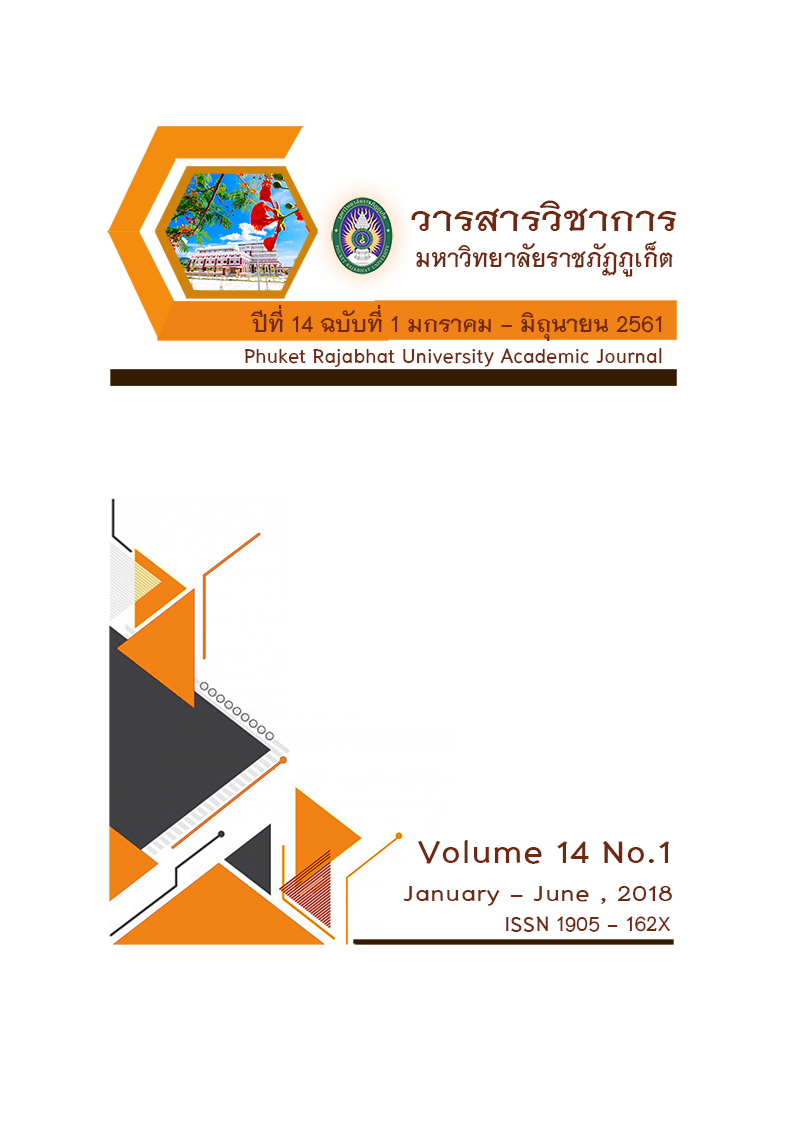การวิเคราะห์องค์ประกอบพฤติกรรมความเป็นพลเมืองที่มีความรับผิดชอบของนักเรียนชั้นมัธยมศึกษาตอนต้น: กรณีศึกษา เขตพื้นที่ภาคกลาง
Main Article Content
บทคัดย่อ
การวิจัยนี้มีวัตถุประสงค์เพื่อ 1) วิเคราะห์องค์ประกอบพฤติกรรมความเป็นพลเมืองที่มีความรับผิดชอบของนักเรียนชั้นมัธยมศึกษาตอนต้น 2) วิเคราะห์ระดับพฤติกรรมความเป็นพลเมืองที่มีความรับผิดชอบของนักเรียนชั้นมัธยมศึกษาตอนต้น 3) เพื่อเปรียบเทียบระดับพฤติกรรมความเป็นพลเมืองที่มีความรับผิดชอบของนักเรียนชั้นมัธยมศึกษาตอนต้น จำแนกตาม เพศ และระดับชั้น และ 4) เสนอแนะแนวทางในการพัฒนาพฤติกรรมความเป็นพลเมืองที่มีความรับผิดชอบของนักเรียนชั้นมัธยมศึกษาตอนต้น กลุ่มตัวอย่าง คือ นักเรียนชั้นมัธยมศึกษาตอนต้น จำนวน 575 คน โดยใช้วิธีการสุ่มตัวอย่างแบบหลายขั้นตอน เครื่องมือที่ใช้ในการวิจัยครั้งนี้เป็นแบบสอบถาม จำนวน 1 ชุด มีค่าความเที่ยงแบบสัมประสิทธิ์แอลฟ่าของครอนบาค เท่ากับ 0.97 วิเคราะห์ข้อมูลโดยใช้สถิติเชิงบรรยาย ได้แก่ ค่าความถี่ ร้อยละ ค่าเฉลี่ยเลขคณิต ส่วนเบี่ยงเบนมาตรฐาน ใช้สถิติเชิงสรุปอ้างอิง ได้แก่ t-test และ F-test ด้วยการวิเคราะห์ความแปรปรวนทางเดียว และการวิเคราะห์องค์ประกอบเชิงสำรวจ (EFA) ผลการวิจัยสรุปได้ ดังนี้
- ผลการวิเคราะห์องค์ประกอบเชิงสำรวจของพฤติกรรมความเป็นพลเมืองที่มีความรับผิดชอบของนักเรียนชั้นมัธยมศึกษาตอนต้น พบว่า ประกอบด้วย 3 องค์ประกอบ ได้แก่ องค์ประกอบที่ 1 ด้านความรู้ ประกอบด้วยตัวแปร จำนวน 19 ตัวแปร องค์ประกอบที่ 2 ด้านทักษะ ประกอบด้วย ตัวแปรจำนวน 21 ตัวแปร และองค์ประกอบที่ 3 ด้านเจตคติ ประกอบด้วยตัวแปรจำนวน 6 ตัวแปร
- นักเรียนชั้นมัธยมศึกษาตอนต้นมีระดับพฤติกรรมความเป็นพลเมืองที่มีความรับผิดชอบ โดยภาพรวมอยู่ในระดับปานกลาง และเมื่อพิจารณาเป็นรายข้อ พบว่า การปฏิบัติตนเป็นสมาชิกที่ดีของครอบครัว มีค่าเฉลี่ยสูงที่สุด รองลงมา คือ มีส่วนร่วม ในการทำนุบำรุงศิลปวัฒนธรรมและศาสนา และมีความเคารพและให้เกียรติผู้อาวุโส ตามลำดับ ส่วนรายการที่พบว่ามีค่าเฉลี่ยน้อยที่สุด ได้แก่ การเลือกใช้กลยุทธ์ที่เหมาะสมในการแก้ปัญหาความขัดแย้งและความแตกต่างที่เกิดขึ้นในชีวิตประจำวัน
- การเปรียบเทียบค่าเฉลี่ยของคะแนนความเป็นพลเมืองที่มี ความรับผิดชอบของนักเรียนชั้นมัธยมศึกษาตอนต้น จำแนกตามเพศ พบว่า ไม่มีความแตกต่างกัน และเมื่อจำแนกตามระดับชั้น พบว่า มีความแตกต่างกันอย่างมีนัยสำคัญทางสถิติที่ระดับ .05 จึงทำการทดสอบรายคู่ภายหลัง พบว่า มีค่าเฉลี่ยแตกต่างกัน จำนวน 2 คู่ ได้แก่ นักเรียนระดับชั้นมัธยมศึกษาปีที่ 1 มีค่าเฉลี่ยสูงกว่านักเรียนระดับชั้นมัธยมศึกษาปีที่ 2 และ นักเรียนระดับชั้นมัธยมศึกษาปีที่ 3 มีค่าเฉลี่ยสูงกว่านักเรียนระดับชั้นมัธยมศึกษาปีที่ 2
- ผลการวิเคราะห์ข้อเสนอแนะที่เหมาะสมในการพัฒนาความเป็นพลเมืองที่มีความรับผิดชอบของนักเรียน ด้วยการสนทนากลุ่มผู้ทรงคุณวุฒิ โดยได้ข้อสรุป 4 ประเด็น ได้แก่ (1) ควรพัฒนาความเป็นพลเมืองที่มีความรับผิดชอบโดยการ บูรณาการกับการเรียนการสอน (2) ควรร่วมมือกับผู้ปกครองหรือผู้ที่เกี่ยวข้องแบบองค์รวม (3) ควรจัดกิจกรรมสนับสนุนส่งเสริมทั้งทางตรงและทางอ้อม และ (4) ควรพัฒนาเครื่องมือวัดความเป็นพลเมืองที่มีความรับผิดชอบที่มีคุณภาพ
Article Details
เนื้อหาและข้อมูลในบทความที่ลงตีพิมพ์ในวารสารวิชาการมหาวิทยาลัยราชภัฏภูเก็ต ถือเป็นข้อคิดเห็นและความรับผิดชอบของผู้เขียนบทความโดยตรง ซึ่งกองบรรณาธิการวารสารฯ ไม่จำเป็นต้องเห็นด้วยหรือร่วมรับผิดชอบใด ๆ
บทความ ข้อมูล เนื้อหา รูปภาพ ฯลฯ ที่ได้รับการตีพิมพ์ในวารสารวิชาการมหาวิทยาลัยราชภัฏภูเก็ต ถือเป็นลิขสิทธิ์ของวารสารวิชาการมหาวิทยาลัยราชภัฏภูเก็ต หากบุคคลหรือหน่วยงานใดต้องการนำทั้งหมดหรือส่วนหนึ่งส่วนใดไปเผยแพร่ต่อหรือเพื่อกระทำการใด ๆ จะต้องได้รับอนุญาตเป็นลายลักษณ์อักษรจากวารสารวิชาการมหาวิทยาลัยราชภัฏภูเก็ตก่อนเท่านั้น
เอกสารอ้างอิง
นงลักษณ์ วิรัชชัย. (2542). โมเดลลิสเรล : สถิติวิเคราะห์สำหรับการวิจัย. (พิมพ์ครั้งที่ 3). กรุงเทพฯ : สำนักพิมพ์แห่งจุฬาลงกรณ์มหาวิทยาลัย.
ปริญญา เทวานฤมิตรกุล. (2555). การศึกษาเพื่อสร้างพลเมือง. กรุงเทพฯ : นานมีบุ๊คส์ พับลิเคชั่น
วิชัย ตันศิริ. (2551). วัฒนธรรมพลเมือง. กรุงเทพฯ : สถาบันนโยบายศึกษา.
ศิริชัย กาญจนวาสี. (2548). ทฤษฎีการทดสอบแบบดั้งเดิม. กรุงเทพฯ : จุฬาลงกรณ์มหาวิทยาลัย.
สถาบันส่งเสริมวิทยาศาสตร์และเทคโนโลยี. (2547). หลักการแก้ปัญหา. [On-line]. Available: http://it.benchama.ac.th/ebook3/page/index.htm [2558, กรกฎาคม 14]
สุพัตรา สุภาพ. (2537). สังคมและวัฒนธรรมไทย ค่านิยม : ครอบครัว :ประเพณี. กรุงเทพฯ : ไทยวัฒนาพานิช.
สุวิมล ว่องวาณิช. (2548). การวิจัยประเมินความต้องการจำเป็น. กรุงเทพฯ : จุฬาลงกรณ มหาวิทยาลัย.
อักษร สวัสดี. (2542). ความรู้ความเข้าใจ และความตระหนักในการอนุรักษ์สิ่งแวดล้อมของนักเรียนชั้นมัธยมศึกษาตอนปลาย : กรณีศึกษาในเขตบางกะปิ กรุงเทพมหานคร. ภาคนิพนธ์ปริญญาพัฒนบริหารศาสตรมหาบัณฑิต (พัฒนาสังคม) สถาบันบัณฑิตพัฒนบริหารศาสตร์.
Congress for Kids. (2008). Citizenship. [On-line]. Available: http://www.congr essforkids.net/citizenship_3_responcitizenshipaction.htm. [2014, June 14]
Fraillon. J., Schulz. W., & Ainley. J. (2012). ICCS 2009 Asian Report Civic knowledge and attitudes among lower-secondary students in five Asian countries. Amsterdam: The Secretariat International Association for the Evaluation of Educational Achievement.
Michigan State University. (2007). 4-H Citizenship : Government Is Us! A Civic Engagement Curriculum for Youth Groups. Michigan State University.
Nunnally, J. (1967). Psychometric theory. New York : McGraw-Hill.
Partnership for 21st Century Skills. (2014). Reimagining citizenship for the 21 st century. [On-line]. Available: http://www.p21.org/our-work/citizensh ip. [2014, June 4]
Tisch, J. M. (2010). Student civic learning outcomes. Tufts University.


